The Eight
An introduction to Religion in Tarin
Worship of The Eight is the religion seen across all of Tarin. As the Gods and Goddesses of Tarin are real individuals, capable of interacting with mortal races, no one disputes their existence. The Gods are more than capable of producing miracles in response to their worshipers, and may even chose particularly zealous men and women to be their Knights.
Mythology & Lore
The religion of The Eight understand that the world was created by The Holy Quartet, made up of the Goddess of Truth, the Goddess of Deception, the Goddess of Order, and the God now known as the Dark God. The Quartet worked together to create the eight beings known as the Elements, who embodied the essence of each element.
Truth and Deception then created the Gods of Creation and Destruction, and together, the Gods reformed the planet to make it habitable by mortals. The Gods of Life and Death were born after the first attempt at creating mortals instead created Sirens, immortal beings more similar to the Gods themselves.
Life and Creation worked in tandem to create the flora and fauna of the planet, and Life worked with each of the Elements to create a race of mortal dragons in their image. These eight elemental dragons were the first mortals to inhabit the planet. Once it was clear that the dragons were thriving, Life and Creation moved to create the souls of what would become Esseni. The youngest of The Eight, Rebirth, was born once it was clear that creating new mortal souls for each esseni that was born would be far too resource intensive, even for Gods.
Soon after the creation of esseni, the Dark God was exiled by the Gods, and His worship outlawed. Whispers circulate that He had done something so awful that even the Gods took offense, though none but the Gods themselves know what truly happened.
Tenets of Faith
The religion of The Eight is very focused on agency, autonomy, self-actualization, and self-exploration. The Gods encourage esseni to be true to themselves, and do not take offense if the mortals wish to change any aspect of their bodies or themselves. In fact, those who claim that seeking to change ones body to better fit themselves is 'blasphemous' are considered to not be true members of the religion.
Kindness and understanding are central to the belief system overall. Murder is frowned upon, as is theft if not for reason of survival.
Priesthood
The Eight High Priests or Priestesses of the religion are the Divine Vessels of the main Eight Gods of the pantheon. Each Vessel has their own Grand Temple where they live and work, located in different countries across Tarin
Temple of Truth
Located in Shikahn
Temple of Deception
Located in Rahnik
Temple of Order
Located in Creni
Temple of Creation
Located in the Maslian Empire
Temple of Destruction
Located in the Raslian Empire
Temple of Rebirth
Located in Kitain
Temple of Life
Located in Andaikos
Temple of Death
Located in Soren
Sects
The sects of the religion of the Eight are dependent on which God is the main focus of their worship. As the Eight is a polytheistic pantheon, all of the Gods are worshiped regardless of sect, but some are given more attention than others.
The Sect of Liaria, Goddess of Truth
Worshipers of Truth value truth above all else. These men and women will attempt to speak no falsehood, no matter the situation. Some find the Sect of Truth to be painfully honest at times.
The Sect of Ainomrah, Goddess of Deception
Worshipers of Deception are known to twist the truth to suit their needs. These men and women are known to change words and meaning fluidly. Friends of members of the Sect are often left wondering what the truth is.
The Sect of Eunomia, Goddess of Order
Worshipers of Order are perfectionists. These men and women are fastidious and work to ensure symmetry and perfection is present in all aspects of their lives. Outside observers are sometimes put off by how unnervingly well put together Sect members are.
The Sect of Manas, God of Creation
Worshipers of Creation are known to always follow creative pursuits. These men and women are writers, artists, and musicians. Some, notably the Sect of Destruction, will say that Creation's Sect is a bit full of themselves.
The Sect of Raski, God of Destruction
Worshipers of Destruction live fast and dangerously. These men and women are known adrenaline junkies, often willing to harm their own bodies in pursuit of fun. Some, notably the Sect of Creation, will say that Destruction's sect are barbaric.
The Sect of Shiva, Goddess of Rebirth
Worshipers of Rebirth are known to be among the most accepting men and women in Tarin. These men and women are therapists, social workers, doctors and nurses. Some worry that those of the Sect will burn out before they are able to give everyone the rebirth they feel they deserve.
The Sect of Azari, Goddess of Life
Worshipers of Life value all aspects of life. These men and women are farmers, gardeners, veterinarians, and doctors. Some may find this sect a touch too sentimental.
The Sect of Kinika, God of Death
Worshipers of Death are able to see the beauty in death. These men and women live their lives to the fullest, knowing that they will one day be welcomed by their God. Despite being optimists, some say the Sect is too comfortable with their own mortality.
The Cult of Septis, the Dark God
Despite His worship being outlawed, there are still two sects that worship the Dark God. Nissayrians worship Him in the aspect of the God of Chaos, and live their lives in a fairly nihilistic manner. The Children of the Blinded Sun worship Him in the aspect of the Dark God. The Children are violent, highly destructive, and vehemently against worship of the other Gods, in particular the worship of Truth. The Children are widely feared, and many believe that all Nissayrians are truly members of this cult.
Founding Date
Worship of The Eight began when the mortal races were first created.
Type
Religious, Organised Religion


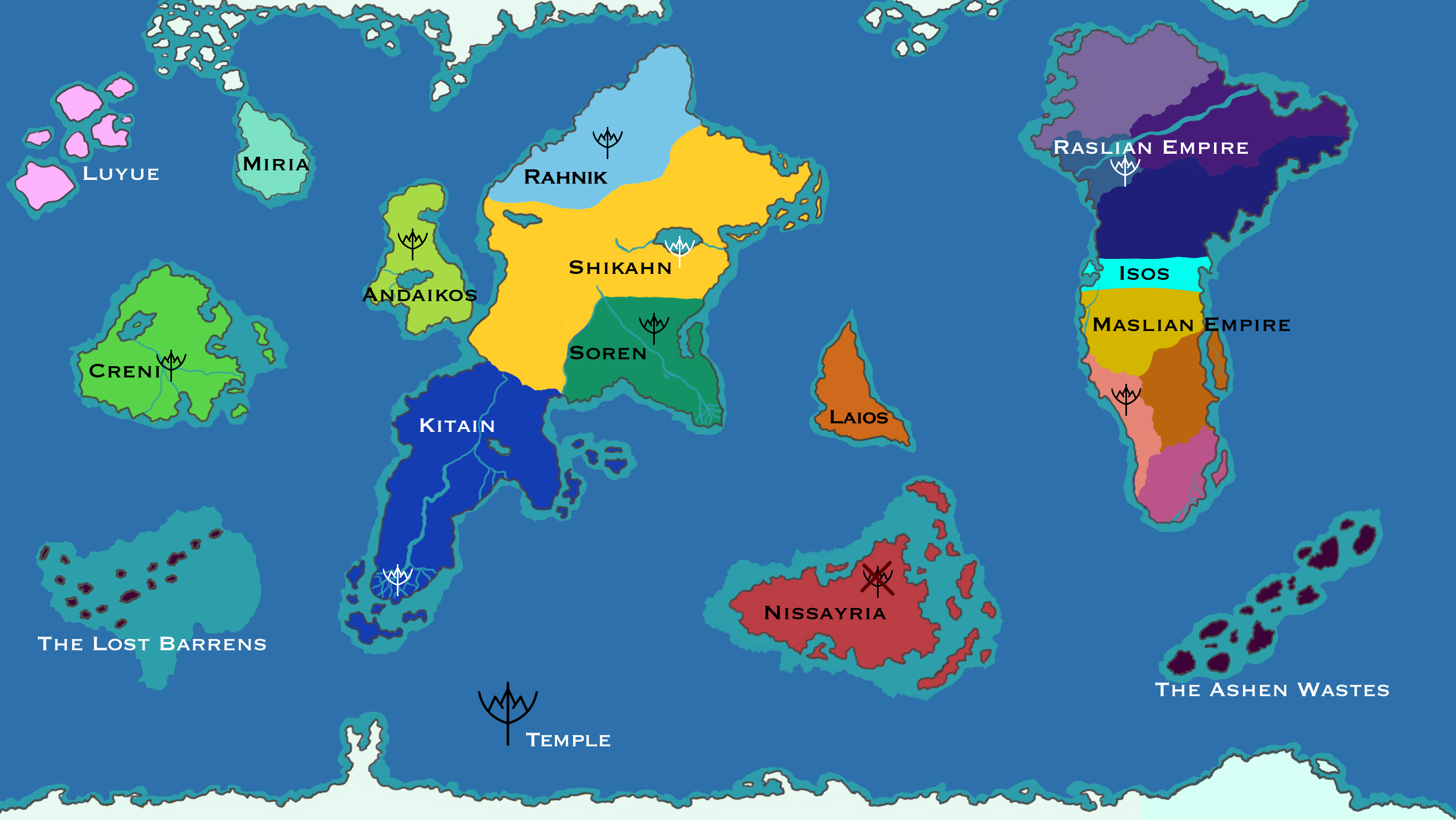
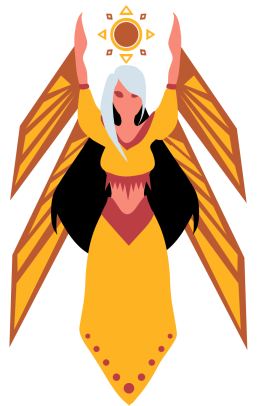
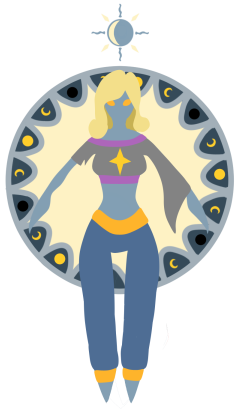
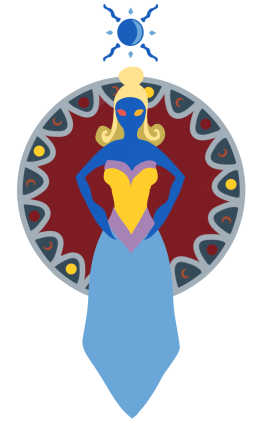
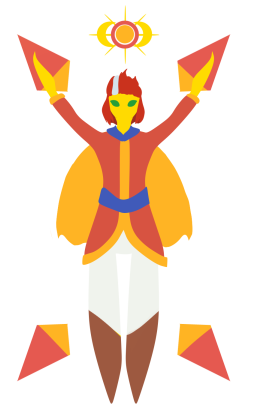
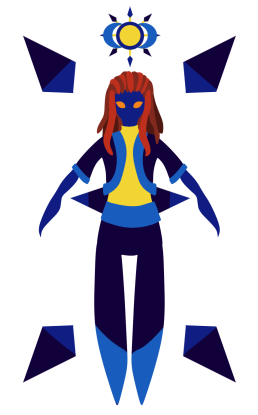
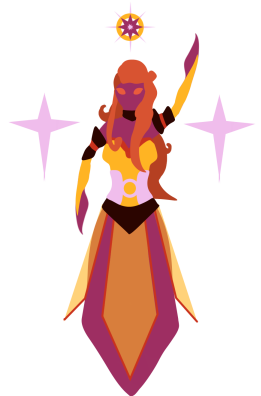
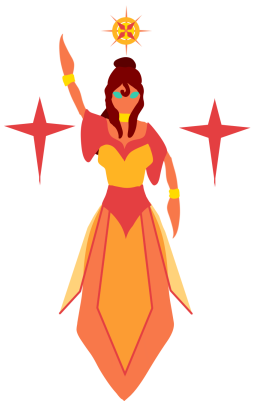
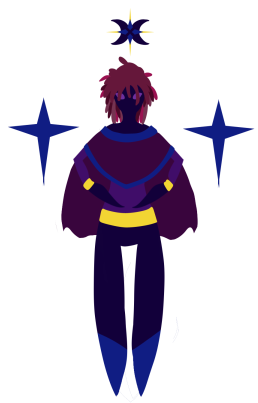
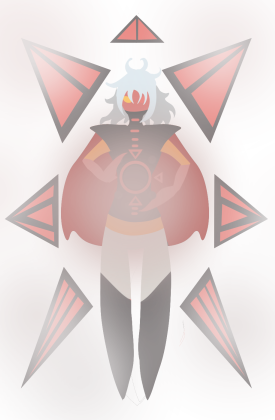


Comments